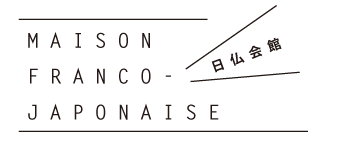Lunch Seminar on Japanese Economy and Society
Japan’s foreign policy toward developing countries
en anglais
sans traduction
| Date |
mardi 05 décembre 2017 / 12:30 - 14:00 |
| Lieu |
Room 601 |
| Conférencier |
DAIMON Takeshi (Waseda University) |

In 2015 a newly announced Japanese International Cooperation Charter, adopted by the cabinet to replace the Official Development Assistance Platform of 2003, was the object of public attention. Historically, Japan began its programme of overseas economic cooperation in the 1950s and became one of the top donors through much of the 1980s and 1990s. With the emergence of China as Asia’s new dominant economic and military power, Japan has lost its competitive edge in international cooperation, despite being known previously as a catalyst for the economic development of emerging economies that never interfered with local politics no matter how authoritarian. Indeed, Japan was the first nation to resume assisting China after the Tiananmen Square massacre of June 1989 and was also the first nation to resume operations with India and Pakistan after their nuclear tests in the 1990s. These actions were criticised by Western donors. Recently, however, with Prime Minister Abe’s emphasis on “values-based diplomacy”, including the “rule of law” as its top agenda, the non-interference principle of Japanese foreign assistance has been replaced with a more proactive position. The new platform explicitly recognizes this point. Has Japan’s stance on foreign aid shifted towards a liberal paradigm or is this the result of a political calculation by the Abe government?
Profile
Takeshi Daimon is a professor of economics and law at Waseda University, Tokyo. He received his MA and PhD in economics (Yale and Cornell Universities) and holds a law degree (JD) from the University of Tsukuba. He has also spent time at the Paris Institute of Political Studies (Sciences Po) as a student and visiting scholar. Prior to joining academia, Dr Daimon was an economist at the World Bank working on infrastructure development and poverty alleviation for Middle Eastern and African countries. In his 30-year experience as a development practitioner he has visited and consulted 70 less-developed countries. His current research interests include law and economics from a development perspective, the economic analysis of peace-building in war-driven countries, and the administrative reforms of Japan’s foreign assistance policy. He also introduced and translated Amartya Sen’s seminal book Identity and Violence for a Japanese audience.
Moderator: Rémi SCOCCIMARRO (UMIFRE 19 – MFJ)
Organization: Bureau français de la MFJ
Co-organization: CCI France Japon.
|
* L'accès aux manifestations de la MFJ est gratuit (sauf mention contraire), mais l'inscription préalable est obligatoire.
Merci de vous inscrire depuis la page Agenda de notre site web.
Dans le cadre des mesures de sécurité renforcées, une pièce d'identité sera demandée à l'entrée.












